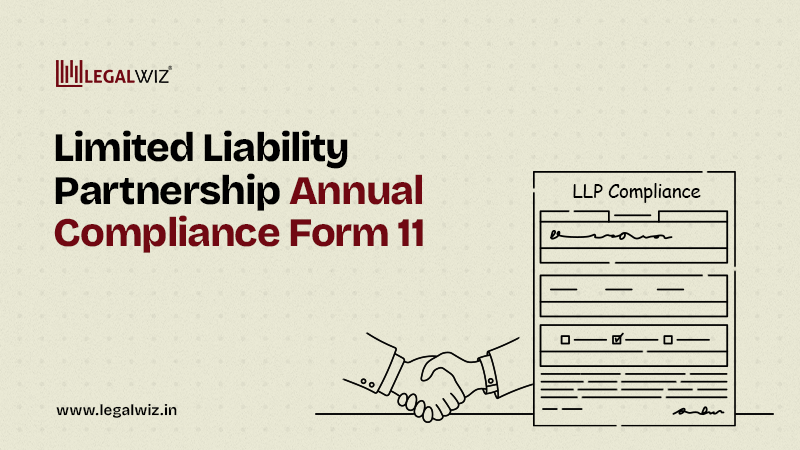Advantages of Limited Liability Partnership(LLP) for Investors
LLP is a Limited Liability Partnership where the owners have a limited liability. LLP is a Partnership which can be considered as an “Ideal Partnership”. A LLP is a corporate body which is a Legal Entity separate from its partners. In an LLP, one partner is not responsible or liable for another partner’s misconduct or negligence. It has Perpetual Succession. LLP has limited liability over the Owner as well as the partner’s thus making it less risky for the owners and partners to invest and it also has an individual identity from its partners thus making it an “Ideal Partnership”. A LLP needs to have at least two partners.
Benefits of Limited Liability Partnership (LLP):
- Cost Effective:
LLP is a cost effective partnership where the registration cost of a LLP is very less as compared to other companies and private limited company. The LLP registration rates are around 800 rupees where as it is expensive when we talk about other companies around 6000 rupees. Thus it is beneficial for the companies to opt for LLP. - Ownership:
The ownership of the LLP is very flexible. The designated Partners can directly get the ownership under an LLP. Whereas in case of other companies they have to appoint other shareholders. - Less Capital:
There is no limit as such for the LLP to bring in certain amount of Paid-up Capital in the business. Whereas in other companies it is mandatory for the owner to bring in a certain sum of Paid-Up Capital. In case of a Pvt. Ltd. Co the paid-up capital has to be 1 Lakh which is a mandatory requirement. - Audit not Mandatory:
The Audit for any company is necessary as well as mandatory but in case of an LLP it is not mandatory except for those having turnover more than Rs.40Lacs or Rs.25Lacs contribution in any financial year. If decided not to get audit of the accounts of the LLP then such LLP shall include in the Statement of Account and Solvency a statement by the partners - Less Legal Compliances:
An LLP has lesser legal compliances as compared to other companies. For instance while registration it is mandatory for other companies to bring the incorporation certificate, LLP Agreement. Registration takes the least time in case of an LLP. - No limit over maximum no of Partners:
In case of an LLP there is no maximum limit of the partners where as in other companies there is a limit of maximum number of partners to be appointed. In case of a Pvt. Ltd. Co it has the limit of 50 partners. Thus in that manner also there are lesser restrictions as compared to any other company. - Perpetual Succession:An incorporated LLP has perpetual succession. Notwithstanding any changes in the partners of the LLP, the LLP will be a same entity with the same privileges, immunities, estates and possessions. The LLP shall continue to exist till its wound up in accordance with the provisions of the relevant Law.
- Easy Transferable Ownership: It is easy to become a Partner or leave the LLP or otherwise it is easier to transfer the ownership in accordance with the terms of the LLP Agreement.
- Taxation: Another main benefit of incorporation is the taxation of a LLP. LLP are taxed at a lower rate as compared to Company. Moreover, LLP are also not subject to Dividend Distribution Tax as compared to company, so there will not be any tax while you distribute profit to your partners.
- Foreign nationals can be the partners in an LLP.
- LLP can invest in a Private Limited company/ Public company and become a shareholder of that company.
- Corporate body can be a partner of an LLP.
- Less Government intervention. Foreign nationals can be the partners in an LLP.
LLP and Investors:
FDI policy has been amended for LLP and foreign nationals can invest in a LLP without the permission of the government. 100% FDI is now permitted under the automatic route in LLPs operating in sectors/activities where 100% FDI is allowed, through the automatic route and there are no FDI-linked performance conditions. An Indian Company, having FDI, will be permitted to make downstream investment in LLPs only if both the company, as well as the LLP is operating in sectors where 100% FDI is allowed, through the automatic route and there are no FDI-linked performance related conditions. Otherwise for the normal investors would not opt for a LLP.
LLP and Start-ups and small business:
LLP is beneficial for the small businesses as well as the start-ups because of its flexible structure. Some of the benefits which are covered above are also beneficial for small businesses and start-ups like paying less paid-up capital, easy transferable ownership, less tax, limited liability etc.

Shrijay Sheth
Shrijay, co-founder of LegalWiz.in, is best known for his business acumen. On this platform, he shares his experiences backed by a strong understanding of digital commerce businesses. His more than a decade-long career includes a contribution to some of the highly successful startups and eCommerce brands across the globe.
6 Comments
Leave A Comment









Thankѕ for sharing your thoughts about investors.
Regards
IS THERE ANY REGISTRATION REQUIRED FOR LLP.pl.clarify
Very good information
It’s difficult to find knowledgeable people in this particular topic, however, you seem like you know what you’re talking about! Thanks
Can a LLP be incorporated in India with the object of : 1. investment in the equity shares of unlisted private company/PE investment. and 2. Open D-mat account to Buy / Sell shares in stock exchanges.
Hi Rajiv, the business objectives mentioned by you need prior SEBI approval before company or LLP incorporation. There are many other aspects you will need to consider as well. Our team of experts will connect with you shortly. Meanwhile, feel free to reach out at support@legalwiz.in